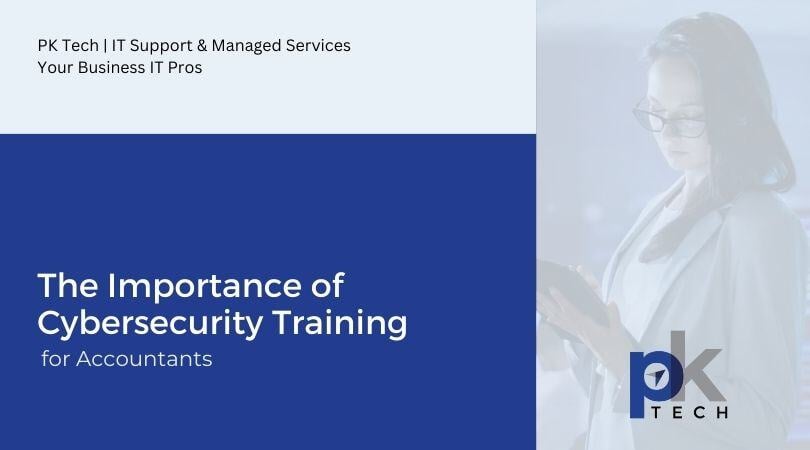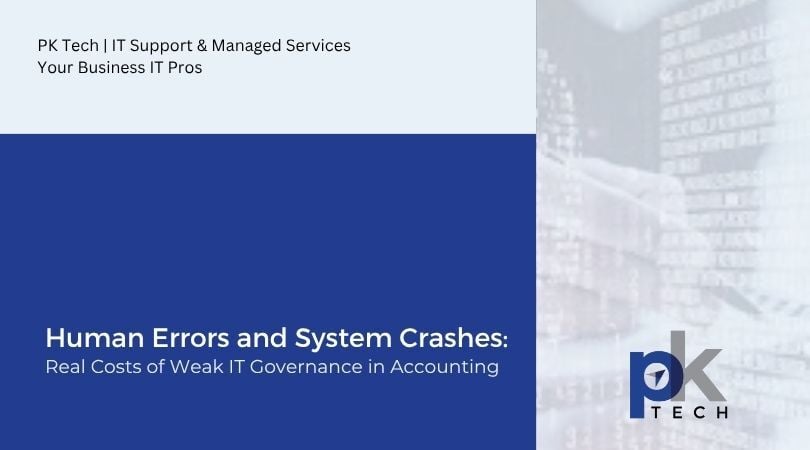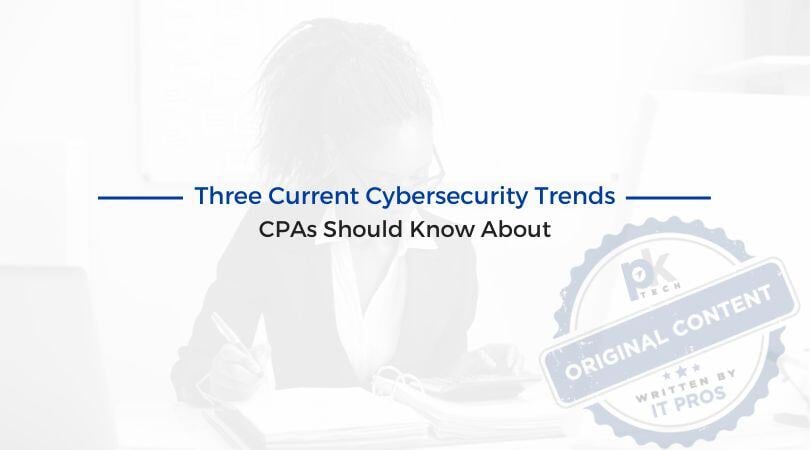The Importance of Cybersecurity Training for Accountants
Even outside of “tax season,” accountants face a unique set of challenges regarding cybersecurity. Often entrusted with handling sensitive financial...
4 min read
PK Tech : Updated on October 16, 2024
-3.jpg)
According to a report from the Association of International Certified Professional Accountants, 60% of accounting firms have experienced some form of cyber attack. Accounting firms are prime targets for cyberattacks – they deal in finances and personal information, a cybercriminal’s jackpot.
Cybersecurity for your accounting firm matters – you need to take it seriously and have a clear plan. A critical component of a robust cybersecurity plan must be regular cybersecurity audits. These are essential to safeguard your firm’s data, maintain client trust, and comply with regulatory requirements.
This guide will detail how to conduct an effective cybersecurity audit for your accounting firm.
Before diving into the audit process, it's crucial to grasp why cybersecurity is vital for your firm. Data breaches can lead to significant financial loss, reputational damage, and legal consequences. Regular audits help identify vulnerabilities, enhance security posture, and help comply with industry standards such as the Gramm-Leach-Bliley Act (GLBA) and FTC Safeguards Rule.
Gather a team of individuals with diverse expertise, including IT professionals, compliance officers, and accounting staff. This interdisciplinary approach ensures a comprehensive review of both technical and procedural aspects of your cybersecurity measures. If you are not already working with one, enlist the help of a managed IT service provider with a focus on accounting firms.
Determine which systems, processes, and data will be included in the audit. Consider focusing on:
Familiarize yourself with the regulatory frameworks that apply to your firm, such as:
Understanding these requirements will guide your audit process and help identify areas needing attention.
Evaluate potential threats to your firm’s data and systems. Consider factors like:
This assessment will help prioritize your findings and next steps.
Examine your current cybersecurity policies, procedures, and practices. Key areas to review include:
Ensure that these documents are up-to-date and align with best practices.
Conduct technical assessments to identify vulnerabilities within your IT infrastructure. This may include:
Engage with third-party experts if necessary to ensure an objective evaluation.
Your staff is often the first line of defense against cyber threats. Assess the effectiveness of your training programs on cybersecurity awareness. Ensure that employees are knowledgeable about:
Consider implementing regular training sessions to keep security awareness fresh.
After completing the audit, analyze your findings and create a prioritized action plan. Address high-risk vulnerabilities first, and set clear timelines and responsibilities for implementing necessary changes. This plan should include:
Maintain thorough documentation of your audit process, findings, and action plans. This documentation is not only crucial for internal purposes but can also serve as evidence of due diligence in the event of a breach or compliance audit.
Cybersecurity is not a one-time task but an ongoing process. Regularly revisit your audit process, update policies, and adapt to emerging threats. Stay informed about the latest cybersecurity trends and technologies to keep your firm resilient against attacks.
Conducting a cybersecurity audit for your accounting firm is an essential step in protecting sensitive client data and ensuring compliance with regulatory standards. By following these steps and fostering a culture of cybersecurity awareness, you can significantly enhance your firm’s security posture and build trust with your clients.
Remember, in the world of cybersecurity, proactive measures today can prevent significant problems tomorrow.
As a managed IT service provider, PK Tech is proud to offer 15 years of experience with a focus on accounting firms. We boast AICPAs SOC 2 Type II attestation, proving via third-party audit by an independent CPA firm that we passed a rigorous and comprehensive assessment of our security and privacy controls. With dedicated experience working with many accounting firms in the Greater Phoenix Area, we have the knowledge and strategy to craft a proactive security structure to defend against your vulnerabilities.
Ready to chat with PK Tech about building a personalized and proactive cybersecurity plan for your firm? Schedule a time to chat with our team here.

Even outside of “tax season,” accountants face a unique set of challenges regarding cybersecurity. Often entrusted with handling sensitive financial...

Today’s CPA firms rely heavily on robust IT systems to manage sensitive financial data, client communications, compliance obligations, and internal...

The April tax deadline has come and gone, so now is the time for CPAs to address significant cybersecurity trends that emerged this year. These...